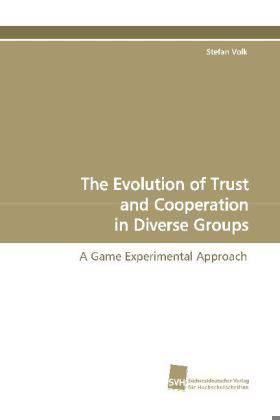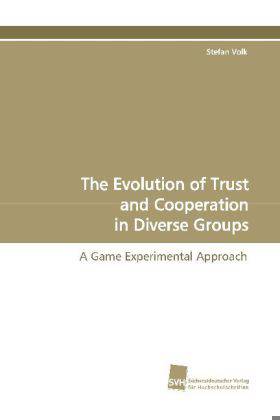
- Afhalen na 1 uur in een winkel met voorraad
- Gratis thuislevering in België vanaf € 30
- Ruim aanbod met 7 miljoen producten
- Afhalen na 1 uur in een winkel met voorraad
- Gratis thuislevering in België vanaf € 30
- Ruim aanbod met 7 miljoen producten
Zoeken
The Evolution of Trust and Cooperation in Diverse Groups
A Game Experimental Approach
Stefan Volk
Paperback | Duits
€ 88,95
+ 177 punten
Omschrijving
Diversity has often been portrayed as a 'double-edged sword' with potentially positive effects on group performance but negative effects on interpersonal relations. The inconsistent findings accumulated by contemporary diversity research raise the question of whether the evidence for the positive and negative effects of diversity can be reconciled and integrated. Recent work has conclusively argued that past research has focused too much on studying the 'main effects' of diversity and neglected to consider the influence of potential moderators that may explain some of the inconsistent findings on the relationship between team diversity and team outcomes. Diversity researchers have therefore called for more attention to moderating variables when developing process models of team diversity. The present work responds to these calls by investigating the effects of group diversity on important predictors of group performance, i.e. the level of behavioral trust and cooperation. Implications for group leaders, managers, and organizations wishing to manage diversity in groups effectively are discussed.
Specificaties
Betrokkenen
- Auteur(s):
- Uitgeverij:
Inhoud
- Aantal bladzijden:
- 208
- Taal:
- Duits
Eigenschappen
- Productcode (EAN):
- 9783838104706
- Verschijningsdatum:
- 3/03/2009
- Uitvoering:
- Paperback
- Afmetingen:
- 150 mm x 220 mm
- Gewicht:
- 292 g

Alleen bij Standaard Boekhandel
+ 177 punten op je klantenkaart van Standaard Boekhandel
Beoordelingen
We publiceren alleen reviews die voldoen aan de voorwaarden voor reviews. Bekijk onze voorwaarden voor reviews.








